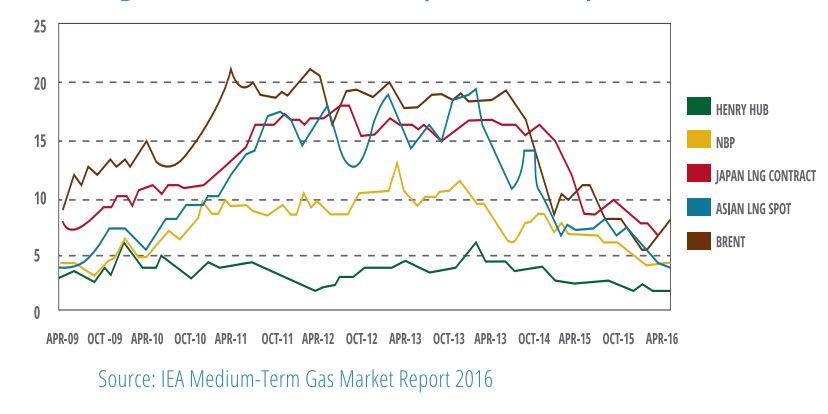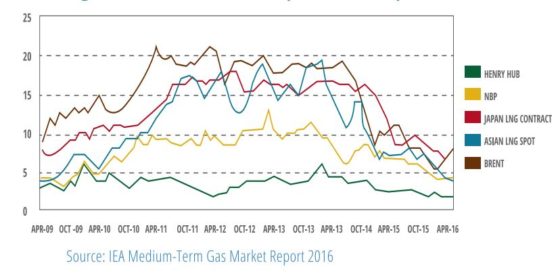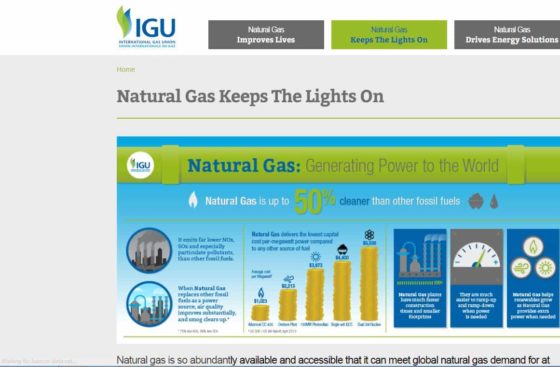
New Delhi, Delhi, India/Businesswire India/–
The International Gas Union, the global voice for the natural gas industry, has issued a new report outlining the essential role of natural gas in global energy policy. The findings have significant implications for India, and its desire to tackle growing air quality issues in a sustainable and economical manner while meeting its commitments towards climate change.
Titled “Global Gas Markets supporting Growth and Sustainability”, and set to be discussed at the fifth IEF-IGU Ministerial Gas Forum meeting held in New Delhi on 6 December, this latest report builds on recent initiatives from the IGU examining a variety of issues including air quality. It follows a study published in November into the positive benefits on urban air following a switch from coal to natural gas, across four major European cities.

As the cleanest burning fossil fuel, natural gas is well positioned to play a growing role at the forefront of India’s future energy mix, and the global energy mix. When used in place of higher-emitting coal and oil, gas can help reduce global greenhouse gas emissions, improve air quality, and offer access to clean and affordable energy in both the developed and developing world. According to the IEA, gas is the only fossil fuel set to increase its share in the primary energy mix by 2040, even under the 2C scenario.

Switching from coal to natural gas in power generation and industrial use can have a significant impact on urban air quality across India, particularly in cities such as New Delhi which recently reported air quality levels 16 times higher than the recognised safe limit. Similar benefits can also be derived by the greater use of natural gas and LNG in the transport sector. The use of natural gas in urban centres can:
- Reduce CO2 emissions by around half
- Reduce NOx emissions by up to 80%
- Almost completely eliminate SOx and particulate matter emissions associated with coal-burning
- Generate indirect savings through decreased costs in sectors such as healthcare
- Provide significant economic benefits as the easiest, cheapest and most readily available lower carbon option
“Natural gas is the perfect solution to complement the use of renewable energy sources in power generation. The global gas market is undergoing a period of rapid and promising transformation, with trade doubling between 2000 and 2015,” said David Carroll, President of the IGU.
“With urban air quality in Indian cities reaching crisis levels, we urge the Government to further examine the huge potential of natural gas, and to take further steps in policy decisions to support the switch from coal-burning. This will improve air quality, improving living standards, generating economic benefits and ultimately extending life expectancy,” Carroll continued.
Policy Recommendations
Following this report, and the recent IGU study into European air quality, the IEA and IGU suggest four sets of policies to accelerate the use of natural gas in India and globally, thus reducing GHG emissions and emissions of health-damaging air pollutants:
- A strong and predictable carbon price signal would support gas against higher carbon emitting fuels in economies such as India. At a very minimum, a price for carbon must be considered when developing policy positions for the future energy mix.
- Continuing market reforms to ensure gas supply and demand responds to clear and transparent market price signals
- Continued support for free trade in LNG to enable free-flow of gas globally
- A more stable and predictable regulatory approach, particularly for unconventional gas production
International Gas Union: Role of Gas in Improving Economic Prosperity





